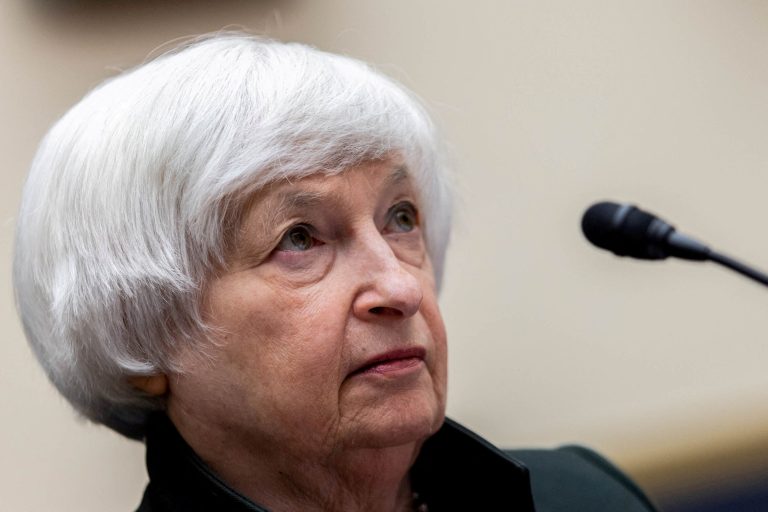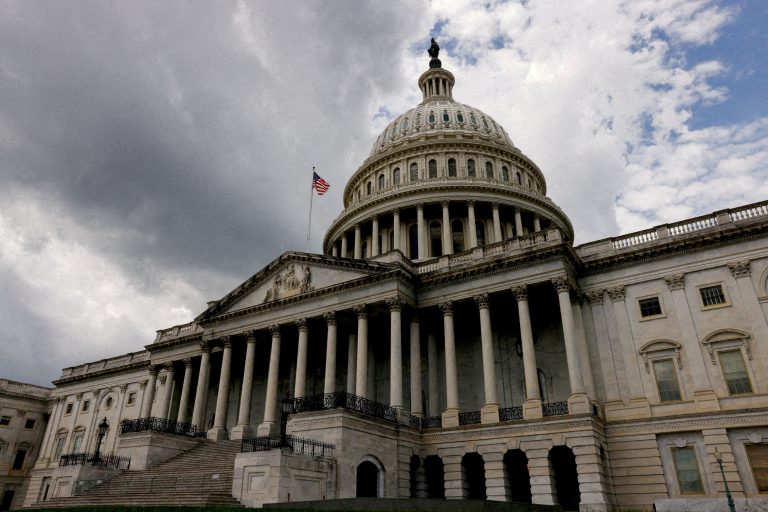During her Europe visit, U.S. Treasury Secretary Janet Yellen urged German bank executives to step up efforts to comply with sanctions against Russia. Speaking on May 22 (Tuesday), Yellen warned that failing to do so would bring potential penalties to themselves, including cut off dollar access.
At the start of a meeting with the German banking executives, Yellen said that the Treasury’s new authority to hit banks with sanctions had helped to impede Russia’s efforts to procure goods needed for its war in Ukraine. She also added more work was needed to reach that strategic goal.
“Russia continues to procure sensitive goods and to expand its ability to domestically manufacture these goods. We must remain vigilant and be more ambitious,” Yellen said.
In preparatory remarks for the meeting in Frankfurt, she stated: “I urge all institutions here to take heightened compliance measures and to increase your focus on Russian evasion attempts.”
This was an unusually direct warning from the U.S. Treasury. Yellen told the German bankers to police sanctions compliance among their banks’ foreign branches and subsidiaries, and reach out to foreign correspondent banking customers to do the same.
- Treasury Secretary Yellen Says US, EU Must Respond to China’s Industrial Overcapacity
- US to Continue Sanctioning Iran to Disrupt its ‘Malign and Destabilizing Activity,’ Yellen Says
- US Puts Pressure on China as Ukraine War Escalates
Success
You are now signed up for our newsletter
Success
Check your email to complete sign up
“Russia is desperate to obtain critical goods from advanced economies like Germany and the United States,” Yellen said. “We must remain vigilant to prevent the Kremlin’s ability to supply its defense industrial base, and to access our financial systems to do so.”
Warning to a German bank in Russia
Yellen’s warning comes shortly after the U.S. Treasury successfully pressed Austria’s Raiffeisen Bank to suppress a deal with a Russian tycoon. The Raiffeisen bank is the biggest Western bank in the Russian Federation.
After intense U.S. pressure, earlier this month Raiffeisen Bank International (RBI) dropped a bid for a 1.5 billion euro ($1.6 billion) industrial stake linked to Russian tycoon Oleg Deripaska.
The deal’s collapse was a setback for the German institute, which faces criticism for its ties to Moscow. The move from Washington showed its willingness to take European banks to back away from their Russia ties.
The U.S. Treasury warned Raiffeisen that its access to the U.S. financial system could be curbed because of its Russian dealings.
On May 6, Deputy Treasury Secretary Wally Adeyemo sent a letter to RBI, expressing concern about its presence in Russia and about the $1.5 billion deal.
However, the official said the Treasury will be “judicious” in applying any secondary banking sanctions, and that it will work with the financial institutions to secure regulatory compliance.
Deutsche Bank and Commerzbank, Germany’s two largest banks, both said via their spokesperson they had significantly reduced their business in Russia, and that they were complying with the sanctions.
Yellen said the most concerning sanctions evasion activity was coming through China, the United Arab Emirates, and Turkey. She added that the Treasury “is working to disrupt evasion wherever we see it, from Central Asia to the Caucasus and throughout Europe.”
She also gave remarks on the U.S.-European alliance in Frankfurt. This week she will attend a meeting of G7 finance ministers in Italy.
“We also remain vigilant to potential vulnerabilities, including elevated levels of corporate debt, leverage and liquidity mismatches in the non-bank sector, and strains in commercial real estate markets,” she added.
Reuters contributed to this report.







